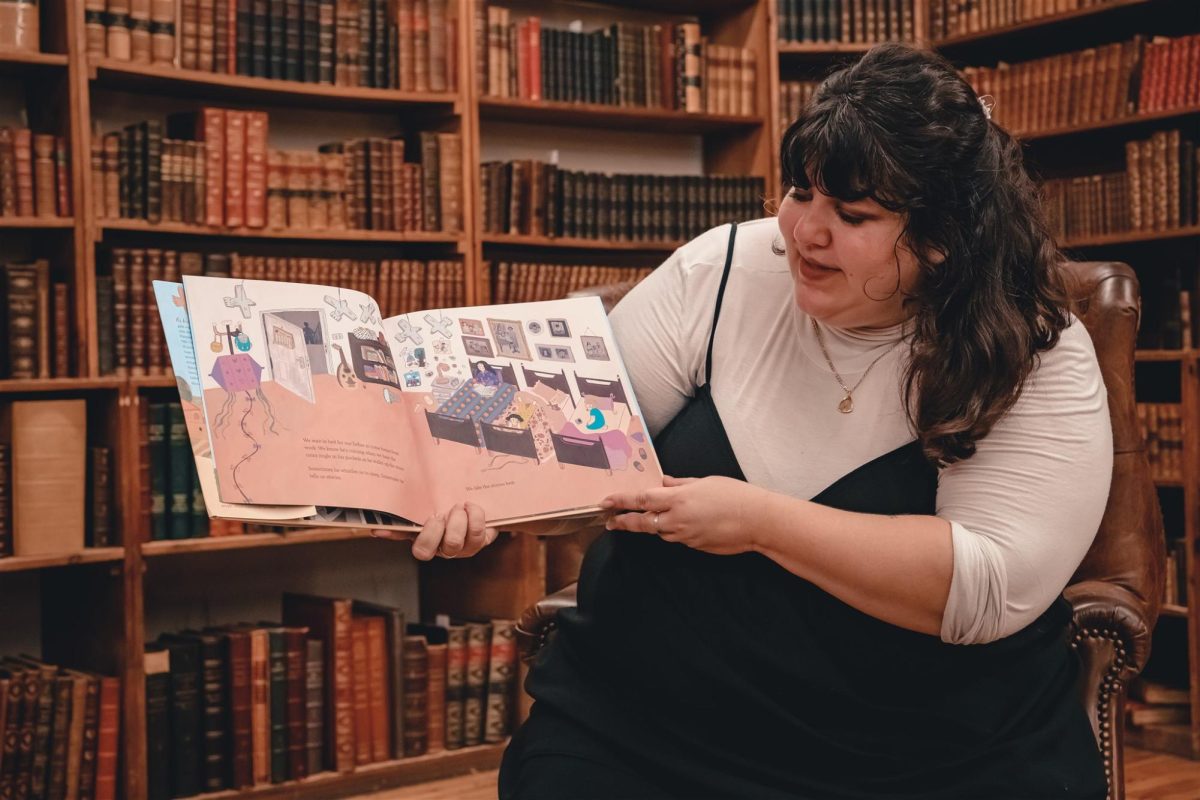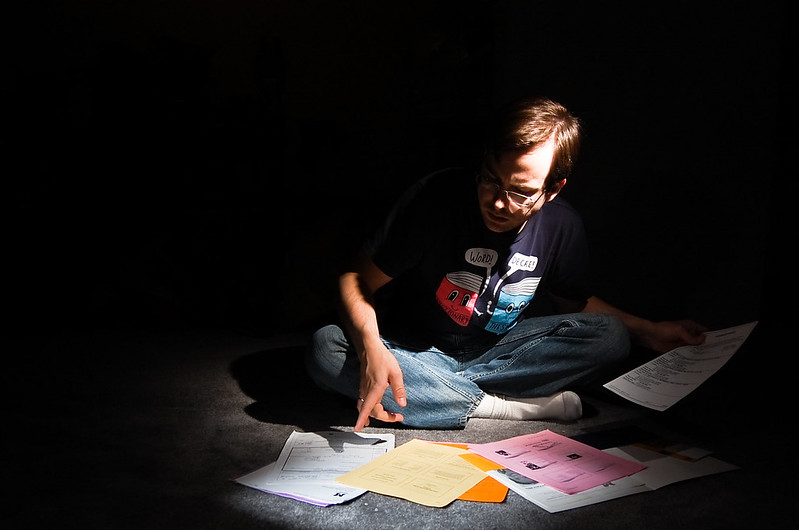Graphic by Keilah Davis/Nubian Message. Photos contributed by AACC Faculty Fellows.
Kennysha Woods | Managing Editor
The African American Cultural Center Faculty Fellowship Program (AACC FFP) is a new semester-long fellowship that supports NC State faculty members’ research endeavors into African-American and African diasporic cultures.
In an email interview with Nubian Message, Sachelle Ford, the assistant director of the AACC, said the program “is an extension of our new emphasis on interdisciplinary research and represents our investment in faculty as well as our investment in scholarly production.”
“We provide them with resources for their projects and an opportunity to showcase their work to the campus community,” Ford said. These resources include access to office and work space, research support from the AACC library and $600 in research funding.
In addition to receiving support, the Faculty Fellows will present their research at a public talk and attend the presentations of the other Fellows. This expectation aims to promote faculty research, engagement and presence in the AACC, which “enriches our intellectual culture” Ford said.
“This means that students who frequent the AACC get more opportunities to engage [with] research, and oftentimes, researchers who look like them.”
Dr. Ronisha Browdy
In her project entitled “Feminist Interpretation of Michelle Obama’s Kitchen Garden as Rhetorical Space,” Browdy, an assistant professor in the Department of English, analyzes Michelle Obama’s White House Kitchen Garden (WHKG) as a rhetorical space.
“Rhetorical space is this idea that physical locations come with certain social expectations about what should occur within them,” Browdy said in an email interview with Nubian Message. These expectations include what, who and how people can communicate in the space.
With her research, Browdy hopes to emphasize WHKG as part of Obama’s legacy and that it
“speaks to the histories, cultures and labor of both women and African American/Black people at the White House long before and long after Mrs. Obama.”
Browdy expressed that the resources provided by the FFP will help her travel to the Kitchen Garden, acquire research materials and connect with the resources, faculty, staff and students of the AACC.
Dr. Qiana Cryer-Coupet and Dr. Delisia Matthews
Cryer-Coupet, an assistant professor of social work, and Matthews, an assistant professor of fashion and textile management, are collaborating on their project, “Jumpman: An Interdisciplinary Exploration of Sneakerhead Culture among Black Fathers.”
This project was based on a survey they did in the fall of 2018 at a sneakerhead convention in Washington D.C. and with self-identified sneakerheads in the Raleigh area.
Cryer-Coupet said, “[We want] to delve deeper into a nontraditional way of looking at fathers’ parenting practices and this idea of fathers, sons and daughters bonding around sneakers.” For the FFP, they aim to focus on solely on fathers.
“The fellowship will allow us to further immerse ourselves as researchers into the Sneakerhead culture,” said Matthews in an email interview with Nubian Message. “It will also give us the opportunity to share the results of our research with the community in a larger scale.”
Dr. DeLeon Gray
Gray, an associate professor of educational philosophy, is working on a project entitled “iScholar,” which works with teachers in Durham, NC to empower and motivate their students—mainly black and Latinx students.
This semester, iScholar is focusing on honoring and affirming students culturally through instructional practices and the school environment.
“One of the big questions we’re asking in the classroom is, ‘Who’s being affirmed, and who’s not being affirmed,” Gray said, “a second major question we’re asking is about…teaching as a dynamic process where you look over time.”
Gray continued: “Just being in this space allows my team to be in a position where we can cross-pollinate with other people who have similar goals in supporting students, particularly those who have been historically marginalized.”
Dr. Derek Ham
Ham, an assistant professor of graphic design, is working on “Exploring the African American Experience Through Mixed Reality,” an endeavor that uses VR to immerse people in the stories, histories and experiences within the African American narrative and foster conversations among people of different identities.
One of the VR experiences was recently featured with the “I Am A Man” Exhibit of the AACC gallery; it told the story of the Memphis Sanitation Workers’ Strike in 1968.
Ham hopes to bring other kinds of VR projects to Raleigh and the campus community, like a cultural exchange workshop in which the two groups of people can learn about and from each other through VR and dialogue.
Ham noted the FFP gives him the opportunity to share his work with a large community: “Unless you’re in a department that focuses on cultural issues—which mine are not—it’s always a great opportunity to share and build knowledge with others, and I think that’s what a true university should be.”
Dr. Elan Hope
Hope, an assistant professor of psychology, has a project entitled “Anti-Racism Activism as a Mechanism to Reduce Racial Inequality in Higher Education,” which focuses on daily experiences of black college students and the effects of anti-racist activism on those students.
Hope said, “There’s a lot of activism happening right now around the world, so I wanted to know for black college students… is that helping or hindering their mental health and their academic performance.”
The funding and work space provided by the fellowship will further Hope’s research, as well as the opportunities she now has to connect with scholars in related fields.
“I applied because I love the work that the [AACC] does on campus,” Hope said, “I think it’s an important center, and I’m a faculty that does research. So I thought there’d be a great synergy between the work I do, and supporting and getting support from the AACC.”
Dr. Jamie Pearson
Pearson, an assistant professor of teacher education and learning services, has a project entitled “Meeting FACES: A Community Workshop for Families and Providers of African American Children with Autism in North Carolina.”
“My work focuses specifically on the disparities in diagnosis and access to services among underserved families of children with autism,” said Pearson.
FACES, which stands for “Fostering Advocacy, Communication, Empowerment and Support,” includes workshops designed to help families get the support they need through advocacy, communication and empowerment.
Pearson’s involvement in the FFP will supplement the materials, research employee and training needed for community workshops.
Pearson added: “I thought it would be a great opportunity to get better connected with other Fellows, to learn more about the resources available at the Center and share more of my work.”
Dr. Kim Stansbury
Stansbury, an associate professor and graduate program director of social work, research is entitled “Clergy Domestic Violence Prevention and Intervention Planning Project.”
Along with her colleague, Dr. Natalie Ames, and Dr. Erica Campbell of Fayetteville State University, Stansbury works with African-American clergy on intervention and prevention of domestic violence in the black community.
Stansbury’s research will go forward with developing focus groups of ministers that will help develop workshops to educate them and their peers on how to intervene.
Stansbury said, “It feels wonderful to be in the first cohort. I hope it’s going to be an ongoing fellowship program, and it feels great to know that I’m going to get a chance to meet other members and see what they’re doing as well.”
Editor’s Note: This spelling of Professor Qiana Cryer-Coupet’s name has been corrected. A previous version of this article incorrectly stated that Cryer-Coupet and Matthews’ project was based on a survey conducted in 2015.







